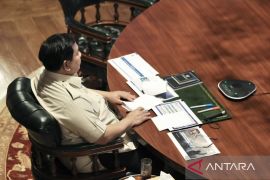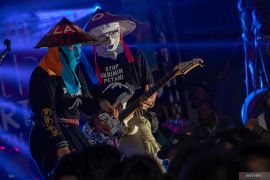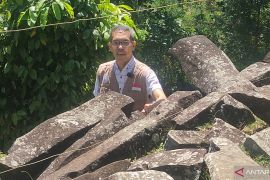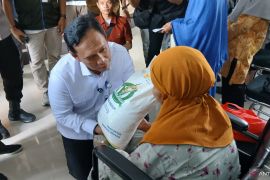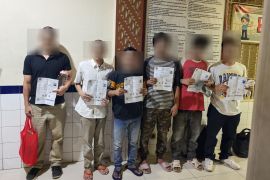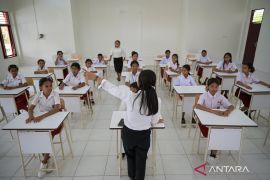Martien, at a press conference at the university campus here on Friday, said the idea of developing a nano chitosan formula originated from his concern about the widespread use of inorganic chemical pesticides to eradicate pests, especially in vegetable and fruit plantations in Ngablak Kopeng sub-district in Central Java province.
"The use of large quantities of inorganic chemical pesticides by farmers is able to reduce pest attacks, but is dangerous to the environment," he stressed.
Martien explained that the waste of shrimp and crab shells was chosen as an ingredient to make environmentally-friendly pesticides because the shells of marine animals contain chitin compounds, which can be converted into liquid nano chitosan particles.
In addition, he further explained, the selection of shrimp and crab shell waste for pesticide materials is also strategic because Indonesia is quite abundant in marine resources.
The nano chitosan formula, which was developed into pesticide ingredients, according to Martien, contains antimicrobial particles, which have the ability to inhibit bacterial and fungal growth, and the formula is also non-toxic.
"It`s not like inorganic chemical pesticides that kill pests, but nano chitosan is sprayed to coat plants and protect them from pests," he revealed.
Besides, since nano chitosan is a biopolymer or natural polymer, it is environmentally-friendly and safe for humans.
"This formula can also fertilize plants because it has the ability to bind nutrients in nature so that it can increase plant productivity," Martien said, adding that currently the formula is being used by farmers in several districts in Indonesia.
More importantly, Martien continued, the nano chitiosan formula from the crab and shrimp shell waste that he developed could also be used as a preservative for fruits, vegetables, fish, and other food items.
Reporting by Yuni Arisandy Sinaga
Editing by Suharto
Reporter: Antara
Editor: Suharto
Copyright © ANTARA 2019
